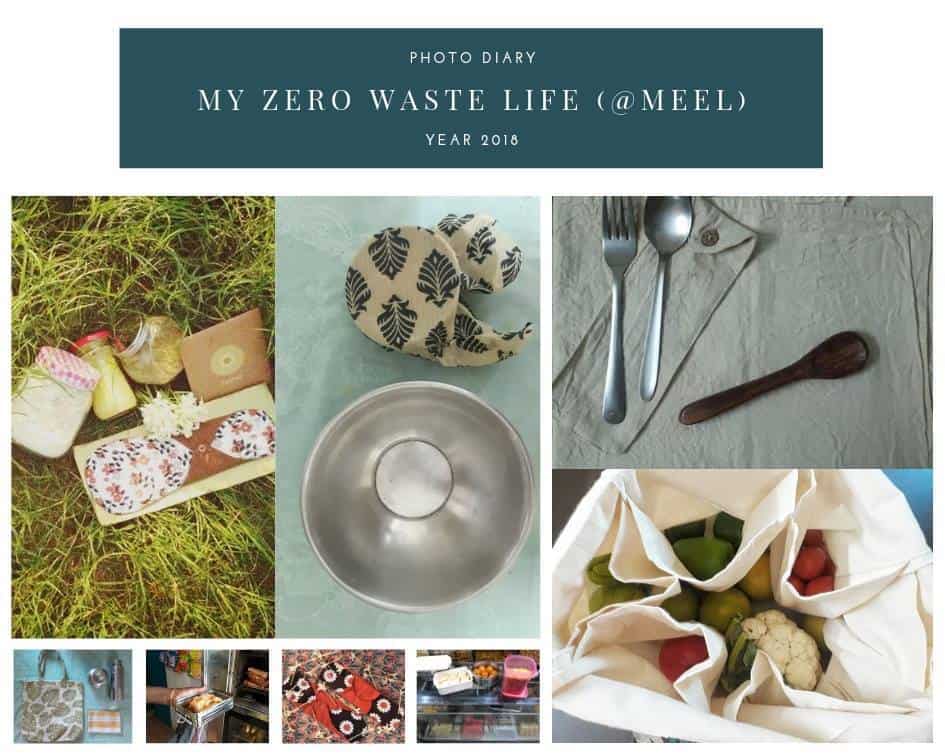With urban centres across the country generating around 1.45 lakh metric tonnes of solid waste a day, denizens are no strangers to lectures on segregating recyclables and composting organic waste.
Increasing pressure on the urban environment is forcing the state to take cognisance and look for alternatives to deal with the mounting solid waste problem. Mid-2018, the Tamil Nadu government announced a ban on all single-use plastics starting January 1, 2019 in a bid to ease the pressures of pollution on the state.
While there’s no denying that stringent laws and penal provisions are required to ensure compliance, these are all external. Rules are framed, laws enacted; but more often than not, all of them end up being promptly flouted. Amidst all the distraction, there exists a growing community of people who take the time out to question their choices, weigh their options and watch out for ways to reduce their footprint; all this for leading a low-waste, if not a zero-waste lifestyle.
What is zero-waste living?
Zero-waste lifestyle essentially looks at redesigning consumption by efficiently reusing resources and ensuring that no “waste” ends up in landfills or in the oceans. While this is a process and certainly cannot be achieved overnight, architect and zero-waste practitioner Nithya T cautions that one should not be intimidated by jargon.
“Zero Waste is only a goal to aspire to, with the conscious intention that the products we consume are not under-utilized, or do not end up in a dump yard. It also means that we do not consume excessive amounts of any resource or cause harm to the environment in any stage of its life cycle. In short, the ideology is to value and respect all natural resources and cause minimum negative impact to the earth and its beings through the decisions we make,” Nithya explains.
While acknowledging that it is not possible for one to be entirely zero waste in today’s urban lifestyle, she reiterates that the aim is to keep the impact to a minimum. And, there are sufficient resources to very well enable a low waste lifestyle.
Alternatives to consider
Herbs, oils and groceries can be purchased packaging free, thanks to the trusted maligai kadais and eco-conscious stores that sell products in bulk. Reusable menstrual products, reusable diapers, low-waste home cleaning products and the works – seek and you shall find. “The ban in effect is the biggest encouragement one needs for sticking to this lifestyle and standing up for it,” she adds. So, instead of zero-waste, aspiring for sustainable, conscious consumerism and a low-waste lifestyle would be a great first step.
Blogger and minimalist Durgesh Nandini promptly agrees. An ardent advocate of minimalism and slow fashion, she has organised clothes swap in cities such as Chennai and Coimbatore. Swapping pieces of clothing instead of trashing them is an excellent example of collaborative consumption where under-utilised assets get a new lease of life in another person’s wardrobe.
“Swapping is a breeze with people who know about minimalism, circular economy, and the effects of fast fashion. For others, the quality of clothes that were available for swapping seemed compelling, but not convincing enough with just a few minutes of conversation,” she mentions. Nevertheless, the concept is slowly finding acceptance as an able means to help reduce and reuse.
While it was a YouTube-suggested video on menstrual cups which prompted Nithya to explore eco-friendly and cost effective solutions, a project to design an eco-sensitive toilet led architect and documentary film-maker Vishnu Priya to rethink everyday sustainability and consumerism.
Insisting that awareness is key, she insists that we need to know why we want to change. “We need to be conscious of what we want to buy and why we want to buy. Very small lifestyle changes can go a long way in making the low-waste dream come true, and it all starts with conscious consumption,” Vishnu Priya adds.

Photo journal of the small changes Vishnu Priya has made towards a ‘zero waste life’ in 2018. Pic: Vishnu Priya / Meel
Asking people to carry reusable cloth bags or their own water bottles might seem inconsequential but there can be no better start. “Regardless of the response, we need to keep repeating these. We need to look for ways to make practices like source segregation of waste and composting appealing, so that more people take it up diligently,” she adds. Vishnu Priya is currently working on a documentary film, Meel (translates to recover or regain in Tamil) that delves deep into current waste management practices and highlights sustainable solutions.
Zero-waste and the city
With its varied people, practices and traditions, every city is unique and different at the same time. But, how easy is it to remain waste-free in urban spaces? Is it even possible?
The geography and history of a city are important factors that need to be considered. “Cities like Coimbatore and Madurai are closer to agricultural lands than Chennai is, making products cheaper there due to reduced transportation costs. So it really is about which city you are in and not being in a city by itself. Nonetheless, every city has its own unique offerings. It all comes down to what works for you and what doesn’t,” adds Nithya T.
The top three entries in most of the zero-waste aspirants’ journals almost always are:
(i) Refuse single use plastic;
(ii) take your own containers to restaurants and bakeries to avoid unnecessary packaging;
(iii) buy items in bulk.
While the first two are relatively easier to incorporate in one’s existing schedule, the third needs a little getting used to.
Shopkeepers as well as customers have become habituated to certain conveniences. Asking customers to bring their own vessels to avoid all the unnecessary packing might seem like the most sensible option, but not when you choose convenience over the environment. It is here that a major behavioral shift is required; one that would strengthen the low-waste campaign and boost collective psyche.
Restaurant owner K. Parthibhan planned ahead and Nithya Amirtham in Mylapore is comfortably positioned to take the ban in its stride. While acknowledging the ban might eventually lead to inflated costs due to increase in packaging charges, he is more than open to experimenting with alternatives. “To encourage customers to ditch packaging, we have now introduced a five percent discount on the total bill value for those who bring their own vessels. Though this is a huge operational challenge, we are willing to try this out and see if it works,” he mentions.
Going the last mile
The community of conscious citizens is growing exponentially. People have, for long, been conscious of the use of plastic bags; gardeners and compost enthusiasts are at their jobs religiously in different corners of the city and we keep hearing about zero waste weddings more now than ever before in the last few decades.
Nithya T, with the support of Chennai-based Namma Ooru Foundation organised a Zero Waste Meet Up in late December 2018, the overall response to which was tremendous. The Foundation goes beyond awareness and helps entities like schools, temples and residential communities put appropriate waste management practices in place while continuing to provide the necessary hand holding and back end support to ensure the system is effectively utilized.
“A low-waste lifestyle is not difficult or expensive. It’s not as time consuming as one may think. It involves reallocating your time and resources to more mindful and healthier options. You don’t have to go all the way, but can simply adopt a few changes. It’s that simple,” quips Nithya and rightly so.
